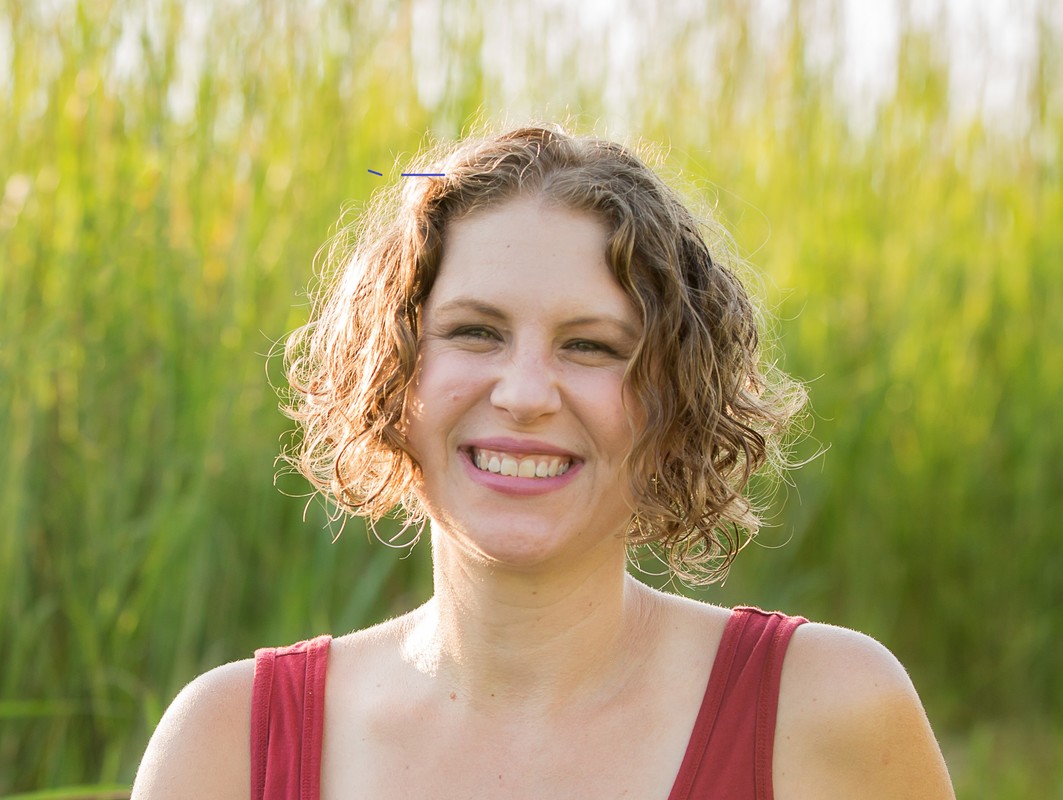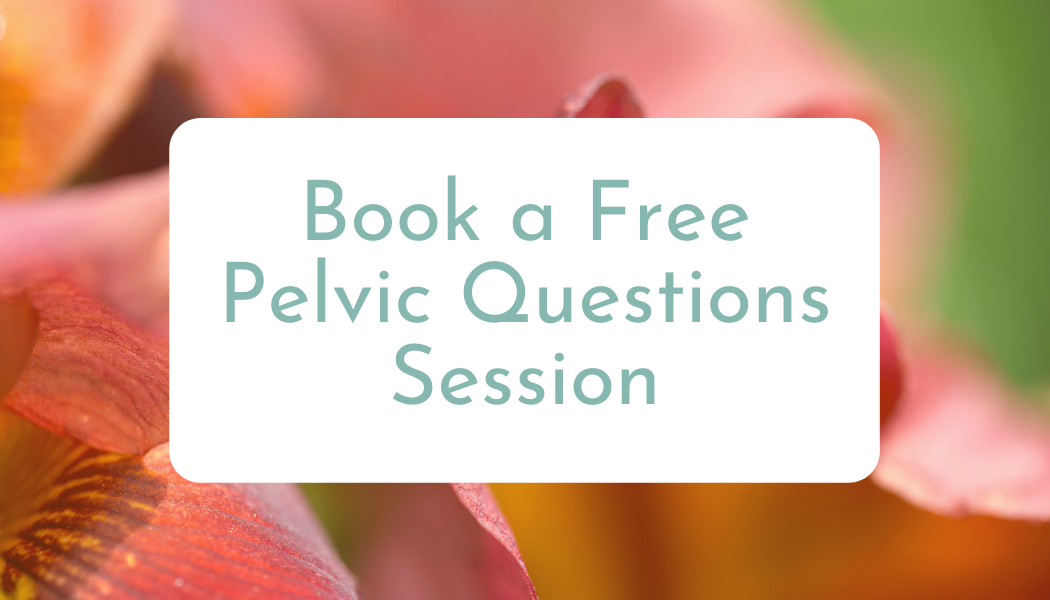 Recently I was asked, "Are there particular herbs or remedies that you’d suggest for clients with pelvic floor dysfunction?" Well, yes and no. This is a classic answer, I know! One of the things I’m on a mission to teach is that plants weren’t invented for our illnesses, so having that expectation of “what’s a good herb for…” doesn't really translate into actual improvements in our health. Because as a general rule plants don’t really care what our problems are! Right?! They're out there, living their lives, making chemical compounds to attract pollinators and defend against pests and foragers, and generally not too concerned with the bipeds sharing their planet. They're not trying to help us, regardless of how much we want to use them to our ends. Having said that, there are some herbs that can help us in some more specific ways. It turns out that lots and lots of plants do interact with us chemically in ways that are beneficial to our health! Just not always, or in expected ways, or precise amounts, so take your time trying out plants as medicine. 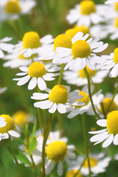 Let me give you an example. Chamomile is one of my favorites, and it plays a great dual role here. First, Chamomile helps relax muscles, especially in the lower abdomen. The sweet apple fragrance of chamomile comes from its essential oils, so making a tea of good quality whole dried flowers, or fresh if you can get them is even better, will help relieve abdominal, menstrual, and pelvic floor muscle cramping. Then, when you let the chamomile sit in the water 20 minutes, an hour, overnight, it gets darker and more complex and bitter, and now your chamomile tea has become a digestive aid. This is also really helpful in PFD b/c constipation can increase pressure and all sorts of things so having a healthy, well functioning digestive system is really important. 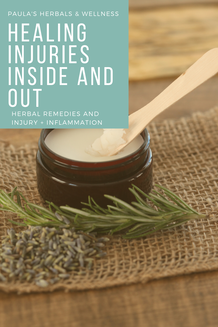 There are also some other plants that can help with PFD symptoms- If you're experiencing irritation, like maybe cystitis, soothing things can help, like:
Astringent aka toning things might help too, like:
Choosing between them is often a matter of self-knowledge and trusting intuition. Does it feel dry, like it needs soothing? Or feel boggy, like there's too much fluid and it needs toning? These herbs are great as teas, especially since these kinds of internal PFD conditions are often helped with more fluid diluting urine. Curious about the soothing suggestion? Yes, you can add Oats to tea! You can also just eat them, well cooked and thick. Also, here's a SUPER tasty and really easy experiment:
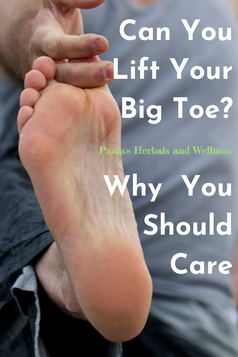 Prolapse is a biggie in the Pelvic Floor Dysfunction world, affecting the muscular organs of the lower abdomen as well as the connective tissues that should be supporting them. Again toning herbs like Raspberry leaf or Rose would help, again as a tea. I can find Raspberry leaf tea bags in most of my local grocery and health food stores, and there are lovely tea blends with Rose in them, like Tulsi Rose or White Tea Rose. My suggestion is to look for organic brands (both because of the quality of the tea and also what the tea bag itself is made of) and to check the expiration date to make sure the box hasn't been sitting there too long. Additionally, Solomon’s Seal is a root medicine that’s really helpful with repairing connective tissue. You can purchase the chopped dried root to use as a tea ingredient, or you can find it infused in oil to use as an abdominal massage. I also have a delicious alcohol-based tincture of Solomon's Seal that I use a few drops of when my joints are feeling too loose (I'm a bit hypermobile) and this could be taken orally or massaged into the abdomen as well.  Remember, though, plants weren't invented for us and so it doesn't work to just "use" them for our benefit. For example, before just walking into a health food store and announcing to the confused staff, "An herbalist on the internet says I need Solomon's Seal for my prolapse!," or buying a case of Raspberry leaf tea and starting a quart-a-day discipline, I might suggest a gentler course of action. Avail yourself of the internet and do a local search for herbalists. Reach out to them and say you're interested in learning more about [enter plant here] and do they grow/sell it, or know anyone who does? Try to talk to an herbal practitioner face to face (or zoom to zoom, as the case may be) (yes I do consultations). Learn what the plant looks like, and try to recognize it if you walk in parks or gardens. Order some dried plant from a bigger supplier like Herbiary or Mountain Rose if you can't find it locally. Chew on a few pieces for a while. Make it into tea (roots need to steep overnight or simmer at least an hour). Drink some tea, then add the rest to a bath. Pay attention to how it feels, comparing it to plants you're used to feeling like Coffee, Peppermint, Chamomile, Onions, Strawberries... you get the picture. You're learning if you and this plant get along, and this isn't anything like watching out for side effects from medications, is it? No one person- friend, therapist, chef, author, actor, boss, etc- is perfect for everyone. No one herb is either. So give it a little time, get to know it, before you decided if it "works for you." Have you ever spent time trying to get to know a plant?
0 Comments
Your comment will be posted after it is approved.
Leave a Reply. |
Fun Fact: I'm an herbalist and a movement coach. Not a doctor, or a pharmacist, and not pretending to be one on TV.
This is a public space, so my writing reflects my experiences and I try to stay general enough so it might relate to you. This does not constitute medical advice, and I encourage you to discuss concerns with your doctor. Remember, however, that the final say in your wellness decisions are always yours- you have the power to choose, you are the boss of you. And, some of my posts may contain affiliate links. If you make a purchase through them I'll earn a few cents. Thank you for supporting my work. This website is provided for educational and informational purposes only and is not medical, mental health or healthcare advice. The information presented here is not intended to diagnose, treat, heal, cure or prevent any illness, medical condition or mental or emotional condition. Working with us is not a guarantee of any results. Paula Billig owns all copyrights to the materials presented here unless otherwise noted. Categories
All
Archives
July 2021
|
|
info @paulaswellness.com |
DisclaimerThis website is provided for educational and informational purposes only and is not medical, mental health or healthcare advice. The information presented here is not intended to diagnose, treat, heal, cure or prevent any illness, medical condition or mental or emotional condition. Working with us is not a guarantee of any results. Paula Billig owns all copyrights to the materials presented here unless otherwise noted. |






 RSS Feed
RSS Feed
